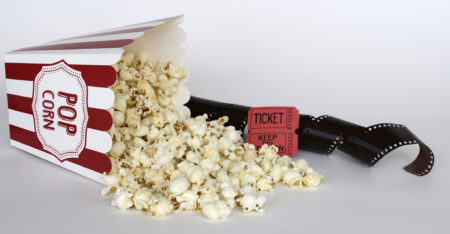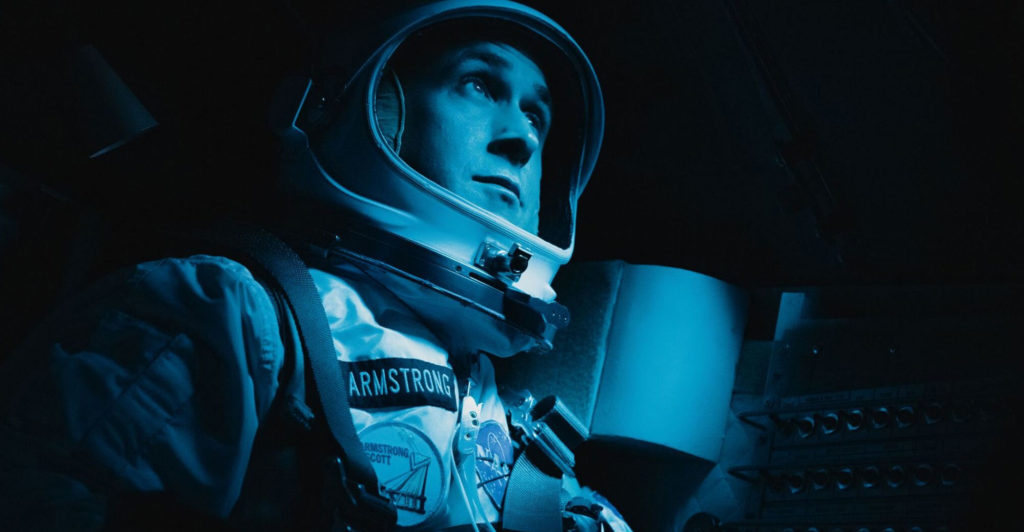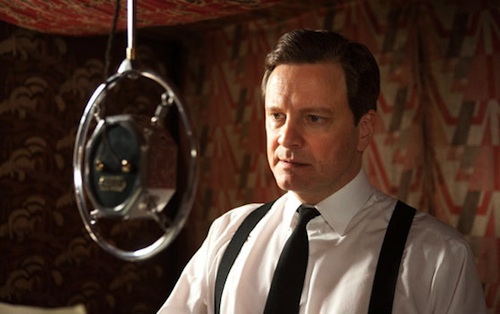
Should a film obviously designed to pander to critics and awards voters automatically be regarded as any more worthy than one made to please the crowds? This is a question I pondered as I watched The King’s Speech, an entertaining but fluffy British period piece widely considered to be a front-runner for the Oscar race this year.
The drama about the struggle by King George VI (played by Colin Firth) to overcome his stammer so that he can make great speeches and lead Great Britain through World War II certainly ticks all the right boxes to please the Academy. It’s impeccably acted, beautifully scored and shot, and tastefully scripted. It is also as formulaic as anything that Michael Bay has ever directed.
One by one, The King’s Speech goes through the requirements for an Oscar-baiting film by following the familiar Merchant Ivory blueprint. Academy Award voters love feel-good stories about human triumph, and it’s so much the better if the narrative can be located in the context of historical tumult to give it a sense of consequence.
What better pairing of subjects than the British royal family and World War II for a film that wants show itself to be a serious awards contender? Of course, while the subject matter should be weighty, it goes without saying that the introduction of too much moral uncertainty isn’t welcome at all. If that means certain facts must be ignored, so be it.
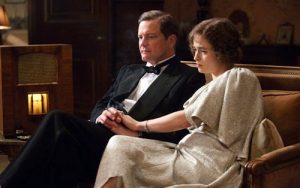
As Christopher Hitchens points out in a withering essay, The King’s Speech is cavalier in its approach to the historical record. It glosses over the British royal family’s initial preference for appeasement of the Nazis — a factor that is widely seen as the only stumbling block for the film on Oscar night.
That is just one many distortions and omissions of fact in The King’s Speech. Though filmmakers are free to play around with the truth for the purposes of art and entertainment, I wonder whether the real historical figures and facts, complex and morally ambiguous as they were, would have made for a more compelling film in this instance.
The film couldn’t sell me on the importance of the king’s wartime speeches — he was nothing more than ceremonial figurehead at the time — and it may have been more successful showing the dawning realisation in England that Hitler could not be appeased. Truth, in this case, was far more interesting than fiction.
Of course, casting is important for a wannabe Oscar winner. The King’s Speech taps Oscar winner Geoffrey Rush and Oscar nominees Colin Firth and Helena Bonham-Carter for its lead roles. Predictably, the quality of the performances is reason enough to see the film; equally predictably, the three stars have earned fresh Oscar nominations for their roles in the film.
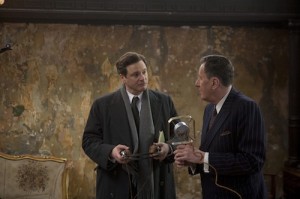
Firth, who many believe was robbed of the statuette he deserved for A Single Man, offers a delicately nuanced portrayal of “Bertie”, the dutiful royal son who rises to the throne as George VI when his brother, Edward VIII, abdicates to marry an American divorcee. Firth’s Bertie is lacking self-confidence, ruined by the horrors of Victorian childrearing, yet resolute and decent.
Rush’s colourful performance as Lionel Logue, the freethinking failed Aussie actor who takes George VI on as his speech therapy patient, is arguably the highlight of the film. He crackles with wit and energy, though there is also an underlying melancholy in his character that makes him more than a clever jester to the regal Firth. Rush and Firth’s chemistry makes the friendship between the unconventional Logue and the stiff George VI believable and moving.
Bonham-Carter’s doesn’t exert herself as Lady Elizabeth Bowes-Lyon — she can do the prim but acerbic tones of Received Pronunciation in her sleep. The supporting cast is mostly excellent, with Michael Gambon’s stern George V, Guy Pierce’s feckless Edward VIII and Derek Jacobi’s Archbishop Cosmo Lang as standouts.
The King’s Speech trailer (via YouTube):
http://www.youtube.com/watch?v=pzI4D6dyp_o
I was less convinced by the portrayal of Winston Churchill as Yoda with a cigar and quivering jowls, always ready to materialise with a word of encouragement or sage advice in Bertie’s most crippling moments of self-doubt. But that’s as much a fault of the script as of Timothy Spall’s performance.
As the predictable final frames of The King’s Speech played out, I was left with little doubt that I had just seen a product of quality. The script’s witty banter sparkles, the cinematography is elegant, the actors are engaging to watch, and the period detail is lavish and convincing. Yet I walked out of the film feeling that it had about as much substance and ambition as a Hallmark card. — Lance Harris, TechCentral
- Subscribe to our free daily newsletter
- Follow us on Twitter or on Facebook


